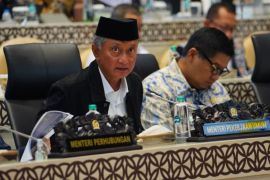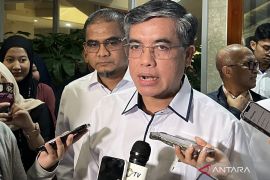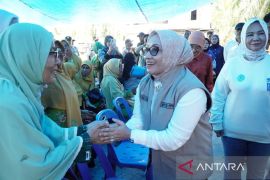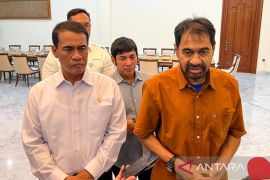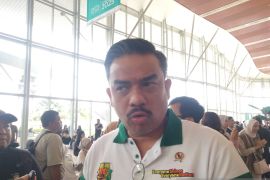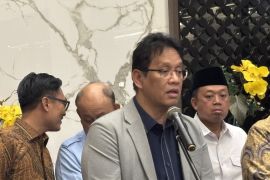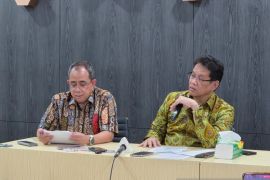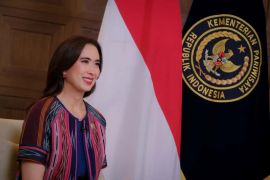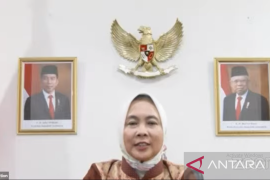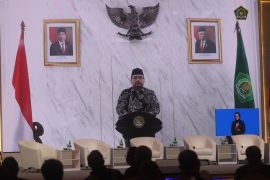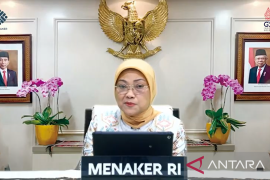The policy we have designed obviously reflects sharia goals. This is what we call adaptive and just community, so how we will improve them.Jakarta (ANTARA) - The Indonesian government has formulated its policy for national economic recovery amid the COVID-19 pandemic by observing Islamic principles, including equal justice, Finance Minister Sri Mulyani Indrawati has said.
“The policy we have designed obviously reflects sharia goals. This is what we call adaptive and just community, so how we will improve them,” she said at the 7th IIMEFC & the 13th ICIEf held online here on Tuesday.
The step must be taken now that the COVID-19 pandemic has created distortion and disparities in the economic, social, and health fields, she explained. As a result, the state budget’s role is very critical, she highlighted.
“Let us look at how we have designed the state budget which is getting to push for even distribution,” she elaborated.
Related news: Indrawati pushes equitable economic recovery at World Bank-IMF meeting
The government has formulated a policy related to the fulfillment of the people’s basic needs, she said. This is in line with the priorities set by President Joko Widodo in the fields of human capital or human resources development, she pointed out.
Indonesia has allocated a sizable amount of budget funds for human resources development through education, health, and social safety net budgets, she said.
“The health budget has currently reached more than 6 percent. Meanwhile, our Constitution necessitates the budget allocation for the education sector at 20 percent of the total budget. The social safety net includes subsidy for the poorest families,” she added.
The government has assured that the budgeting policy will cover the entire nation so that none of the citizens miss health and educational services, the minister said.
In addition, the government is also striving to apply Islamic principles, maqashid al-syariah, or achieving happiness and welfare in the world and the hereafter through good life order, she added.
Related news: Economic recovery hinges on continued stringent COVID-19 handling
“The second is maqashid. This is about the distribution of property, wealth, and income at a district level,” the minister said.
Therefore, the government is providing cash transfers or utilizing the social budget to feed the poorest and most vulnerable families to ensure that their needs and welfare are met, she added.
The government is also applying a progressive income taxation system in which people who earn more pay more since the tax collection will be used to support the poor, she informed.
Related news: Financial digitalization is crucial factor in economic recovery: BI
The tax collection will also be used to build basic infrastructures which are very useful for the poor so that they will get jobs and boost productivity, she said.
“So, tax actually reflects what we call the equality principle," she said.
Lastly, the government is applying the principle of equal rights, chances, and profit in accordance with the business opportunity democratization system and Islamic values—giving justice, chance, and equality to all to develop, she expounded.
“So, these all may be viewed as an ordinary fiscal policy but actually they reflect Islamic values,” she remarked.
Related news: 5-day quarantine mandatory for Indonesians returning from abroad
Related news: Tourism development can fuel village economy recovery: expert
Translator: Astrid Faidlatul H, Suharto
Editor: Fardah Assegaf
Copyright © ANTARA 2021

